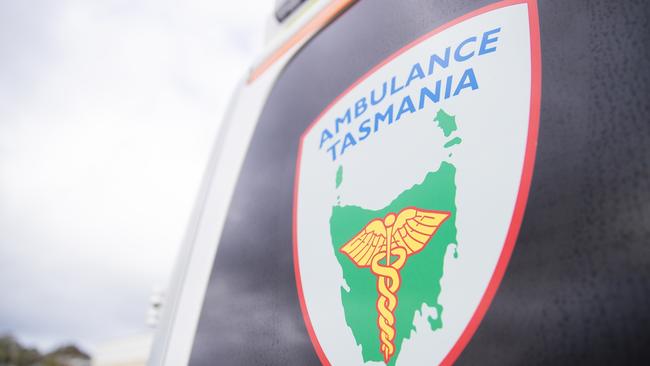Paramedics gave ‘sound care’ to Tasmanian child who died after choking on a metal screw
A coroner has absolved Ambulance Tasmania of blame following the tragic death of a toddler who choked on a metal screw. The coroner’s findings>>

Police & Courts
Don't miss out on the headlines from Police & Courts. Followed categories will be added to My News.
A coroner has absolved Ambulance Tasmania of blame following the tragic death of a toddler who choked on a metal screw.
The little boy, aged 11 months, died from hypoxic brain injury – a restriction of oxygen to the brain – in May 2022.
In his findings published on Monday, Coroner Robert Webster also said the child’s “loving and attentive” parents were not in any way to blame for the “very unfortunate and tragic accident”.
Mr Webster said the toddler, who cannot be named for legal reasons, started choking on the morning of May 7 – with his parents attempting to dislodge the object from his throat.
An ambulance was called, with paramedics on the scene within minutes – finding the child blue in colour and making “agonal respirations”.
Unable to clear the object manually or by striking his back, and with the boy not breathing, the paramedics began CPR.
An intensive paramedic then arrived, using a laryngoscope to inspect his airway, finding a 2cm screw and using forceps to remove it – before intubating him and giving him adrenaline.
Aeromedical consultant Tu Quyen Mai arrived soon after by road as there was no time to take advantage of a helicopter, finding the child intubated and hand-ventilated, and pale, blue and “floppy”.
Dr Mai said she thought the child’s outcome “could have been different”.
She noted that Ambulance Tasmania’s policy was that no crew member may intubate a child under the age of 12 months unless this is done by a doctor – but said the intensive care paramedic’s decision to do so had been the right one.
“She says if the initial crew had advanced airway skills or more airway training the outcome could have been different,” Mr Webster said.
“She believes at the time they arrived, (the boy) was alive, with a reversible cause, and he died … therefore in her view this reflects potential inexperience of the road crew and may reflect gaps in airway training skills maintenance.”
Mr Webster said because of Dr Mai’s concerns, he organised for coronial medical consultant Anthony Bell to review all of the evidence in this case.
But the coroner found the paramedics gave sound care, and the treatment by the intensive care paramedics could “not be faulted”.
Dr Bell said agonal breathing could continue for 10 to 15 minutes after a person dies, and that in this case, the child was likely already deceased by the time paramedics arrived.
He said the paramedics who were unable to intubate the child used bag valve mask ventilation instead, and that appeared to be sufficient.





